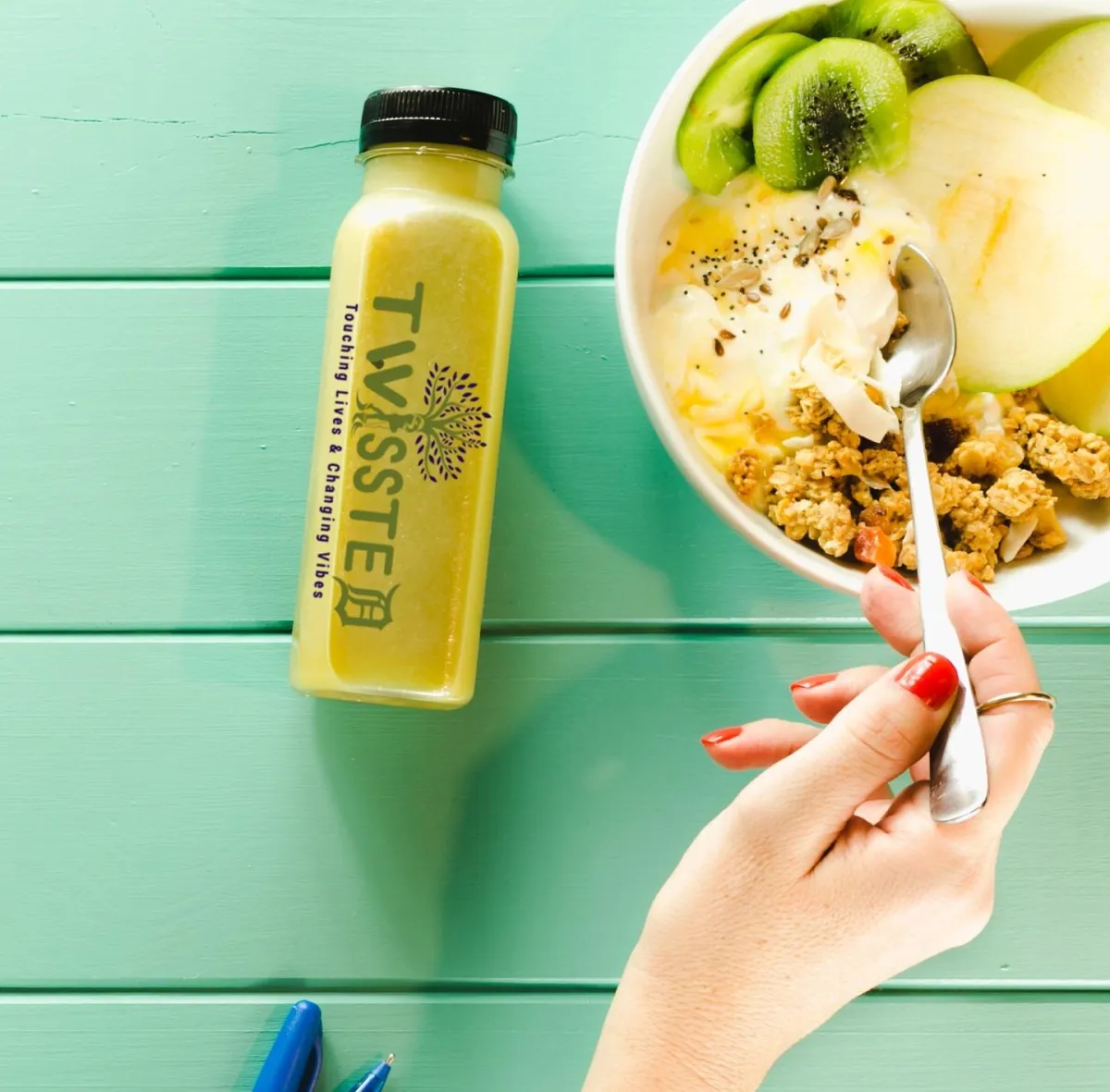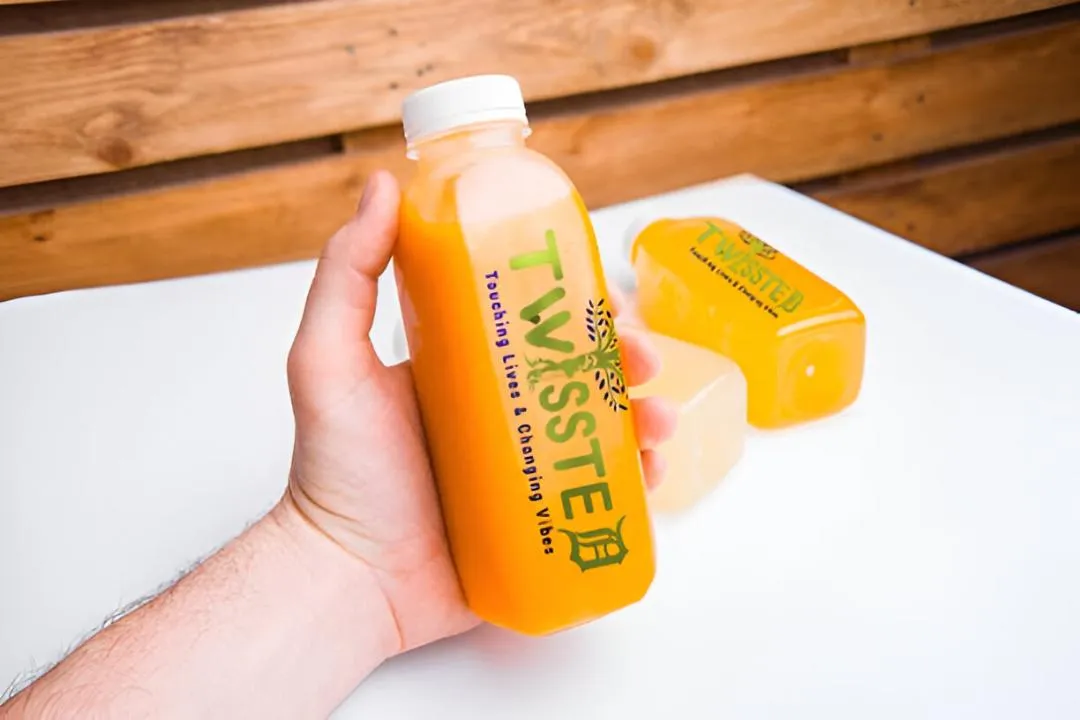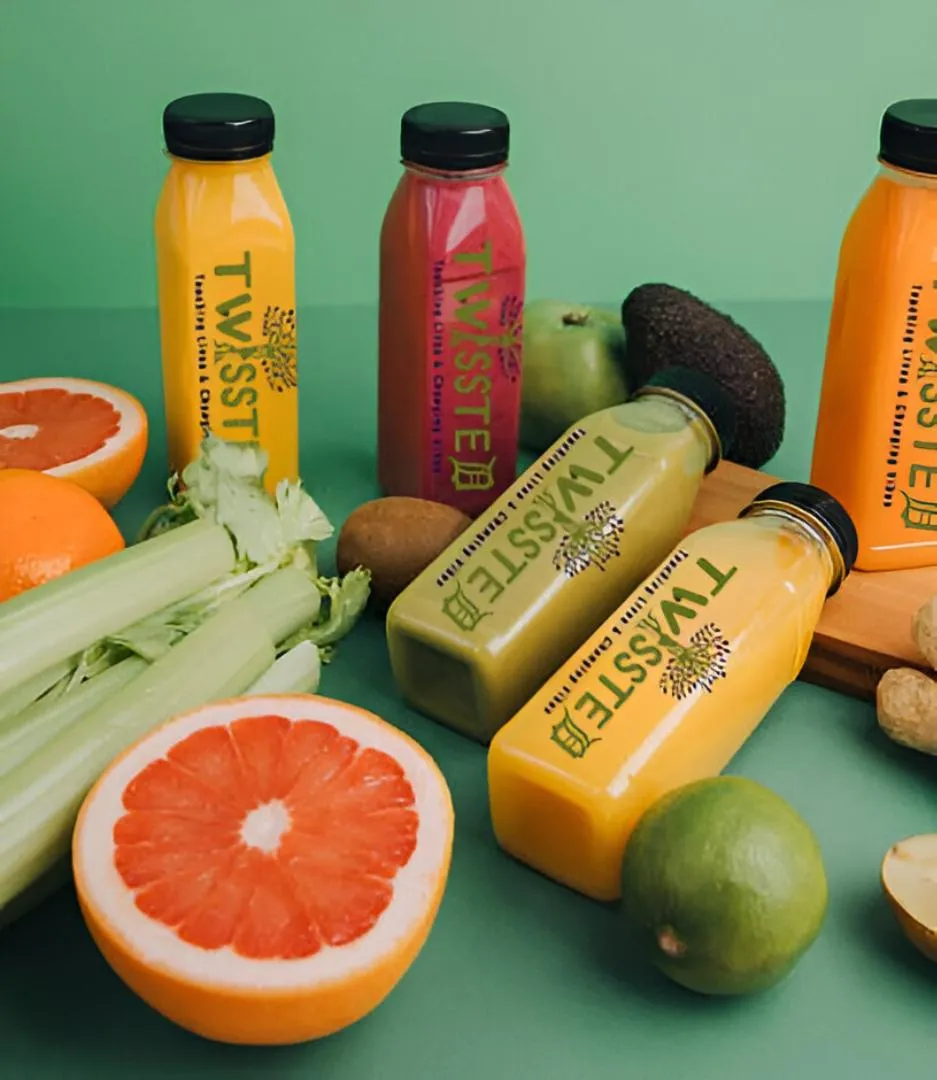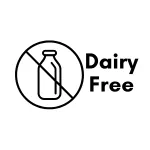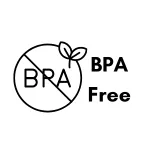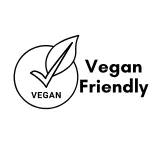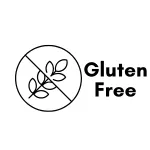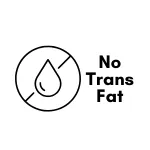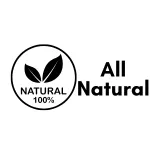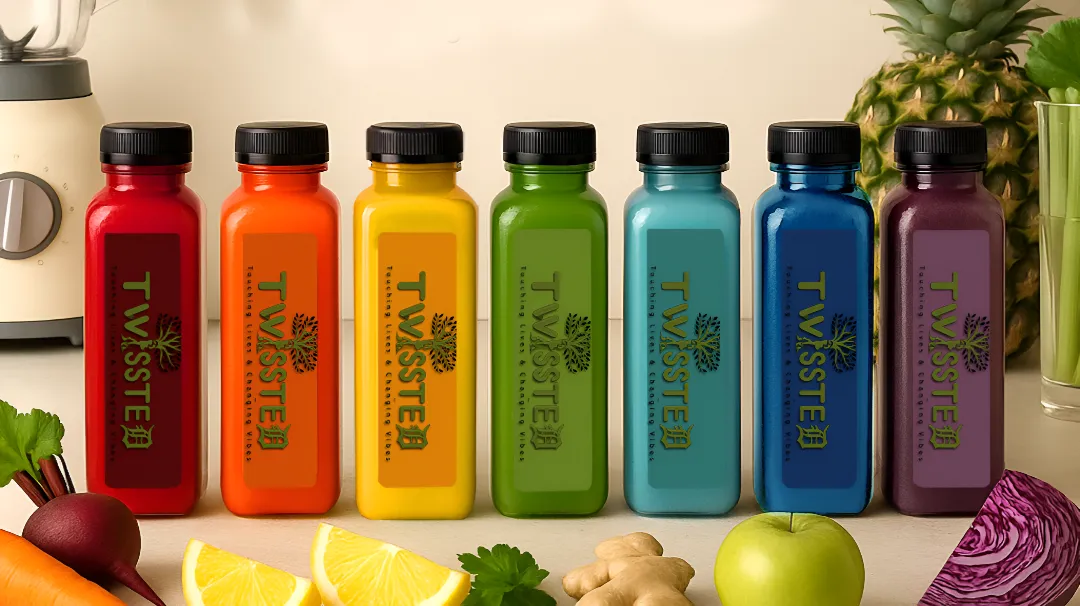
Start Your Health Journey Here
From quick resets to lasting wellness, our cold-pressed juice cleanses support your goals with pure, nutrient-rich ingredients.
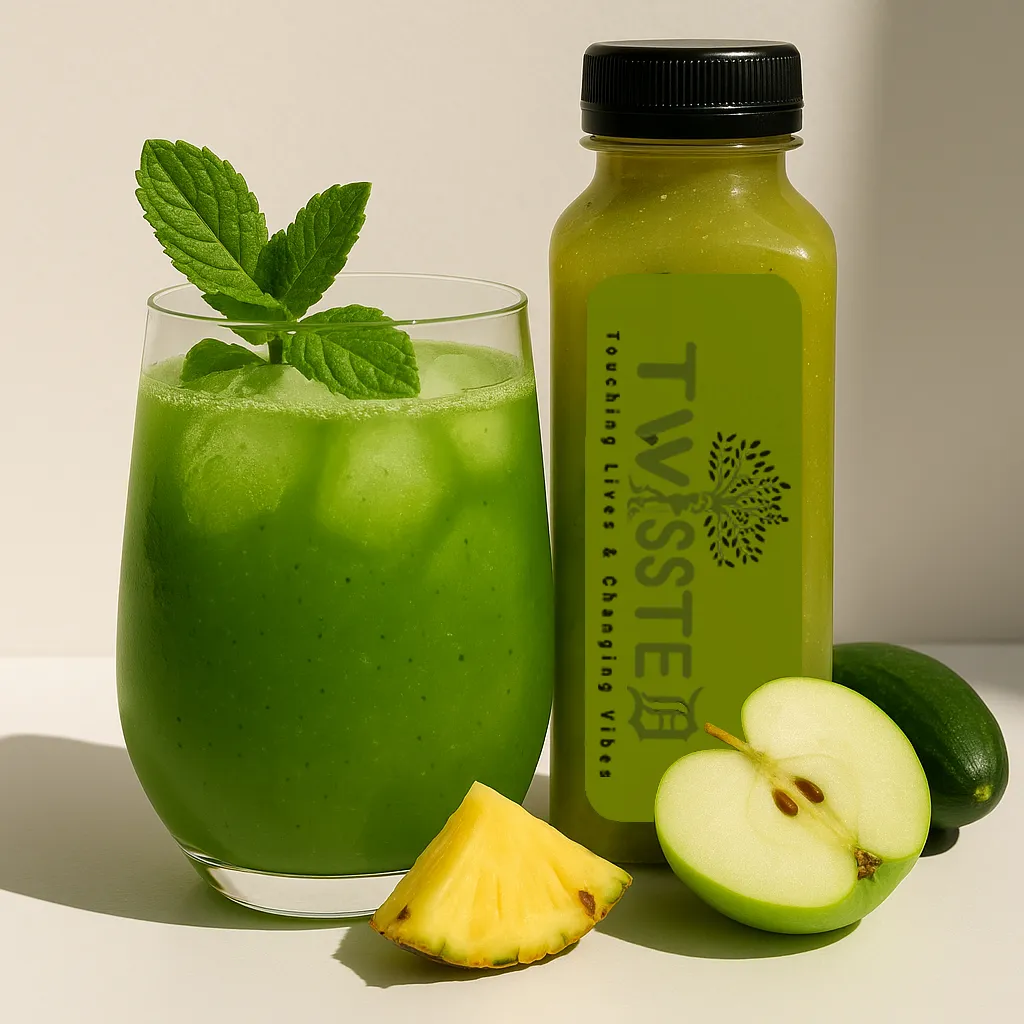
Twissted Signature
A refreshing cold-pressed blend of mint, pineapple, green apple, and cucumber—perfect for detox or daily refresh, with no added sugar or preservatives.
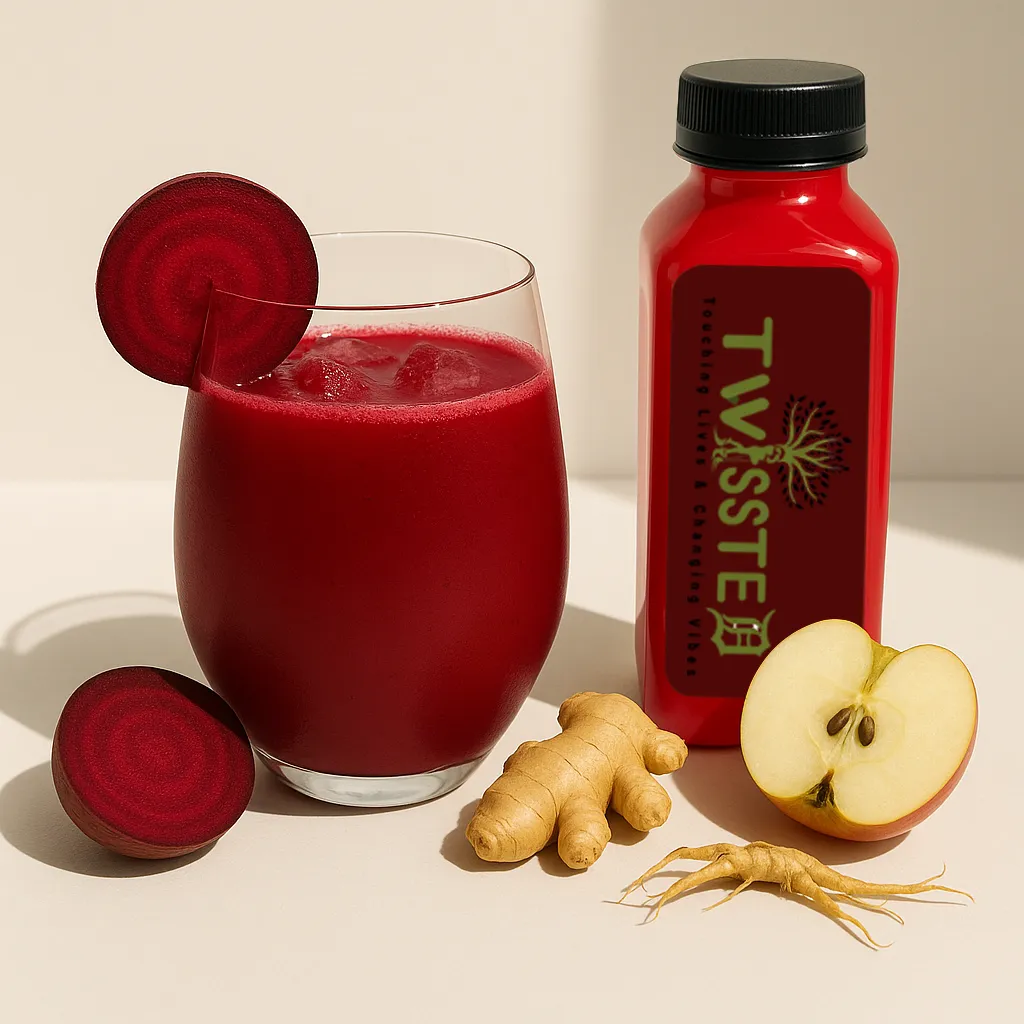
Beet 'EM' Up
Power up with a refreshing cold-pressed blend of beets, ginger, apple, and ginseng—great for energy, detox, and blood pressure support.
TESTIMONIALS
What others are saying.

"Loved everything so far"
“I loved the Chakra Cleanse from Twissted! My favorites were the Solar Plexus and Third Eye Chakra with a good balance of earthy greens and citrusy flavors. Overall, a tasty and refreshing way to feel more balanced!"
-Delicia


"My life changed forever"
"If you’re looking for a tasty and healthy way to fuel your body, Twissted’s cold-pressed juices are a must-try! They’ve got five vibrant flavors. Trust me, your body will love these!"
-Sidney

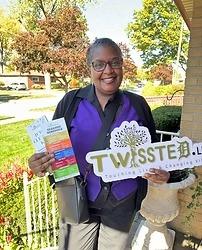
"Highly recommend this"
“Thumbs up to Twissted with their cold pressed juices. My favorite is Beet ‘‘em’ up. I see myself in taking more fruits and vegetables through juicing. Also, I have noticed a change in my digestive system and less inflammation in my knees.”
— Gale Ledbetter


How To Enjoy Our
Cold-Pressed Juices?

STEP 1: Order Pickup

STEP 2: Sip & Enjoy
Made Fresh: Monday / Wednesday / Saturday
Pick Up: After 3PM
HOW TO STORE?
Our juices has up to 7 days shelf life.
Keep in the freezer until ready to start.
When ready to start rotate from the freezer to the fridge.
If you're in a rush, you can put the bottles on the counter for a few hours or in a warm bowl of water.
Once thawed, drink within24-48 hours.

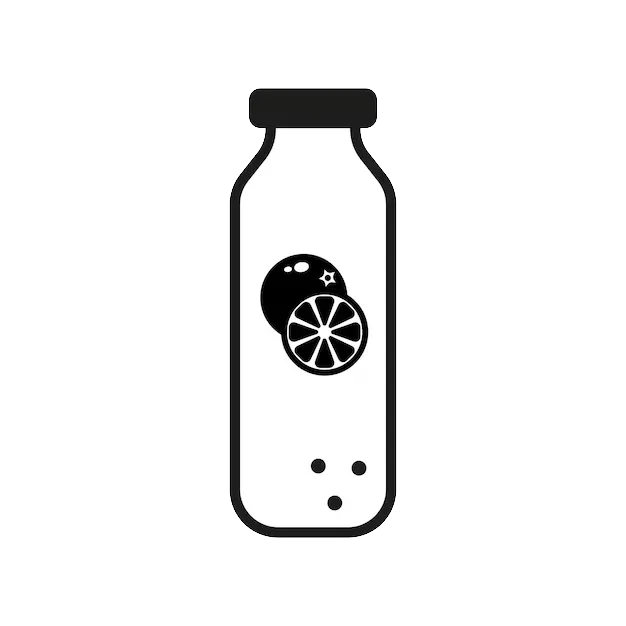
Trust in Every Bottle
Reliable. Safe. Refreshing.

Goodness You Can Trust
Wholesome. Honest. Flavorful.
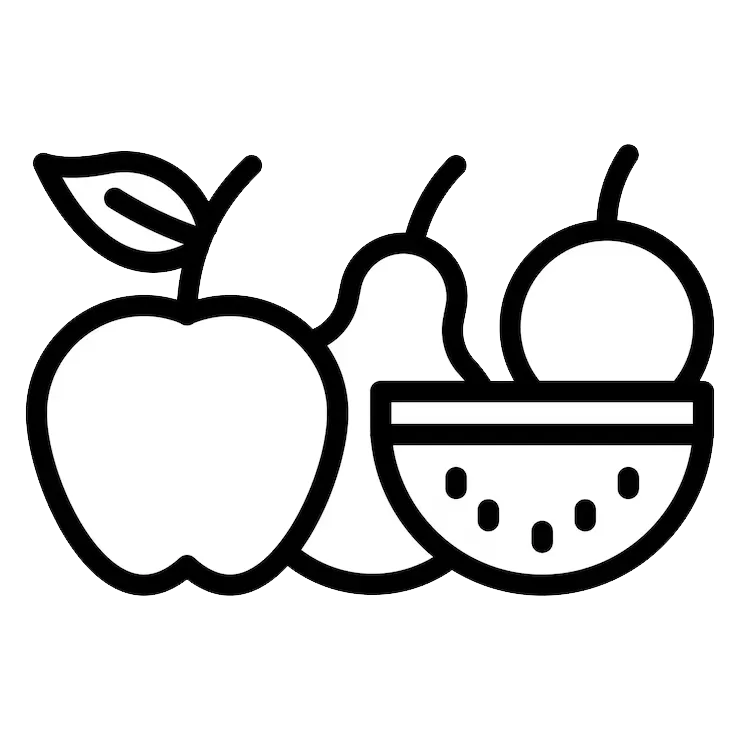
From Nature, With Care
Thoughtful. Fresh. Delicious.
Listen to Your Body Signs
It's Time to Cleanse
Recognizing the Signs and Embracing the Transformative Benefits of Cleansing
Our environment and our busy schedules can make it very difficult to maintain a healthy lifestyle balance.
Looking for a way to get back to feeling healthy and energetic? Around 70% of your energy is spent on digesting your food every day. When we drink cold-pressed juice made from whole fruits and vegetables, instead of eating them, it gives our digestive system a much-needed break. This allows our bodies to easily absorb the vital nutrients in the juice.
Cleansing with cold-pressed juice gives our body the time to focus on healing itself from the inside out by flushing out stubborn toxins and waste.
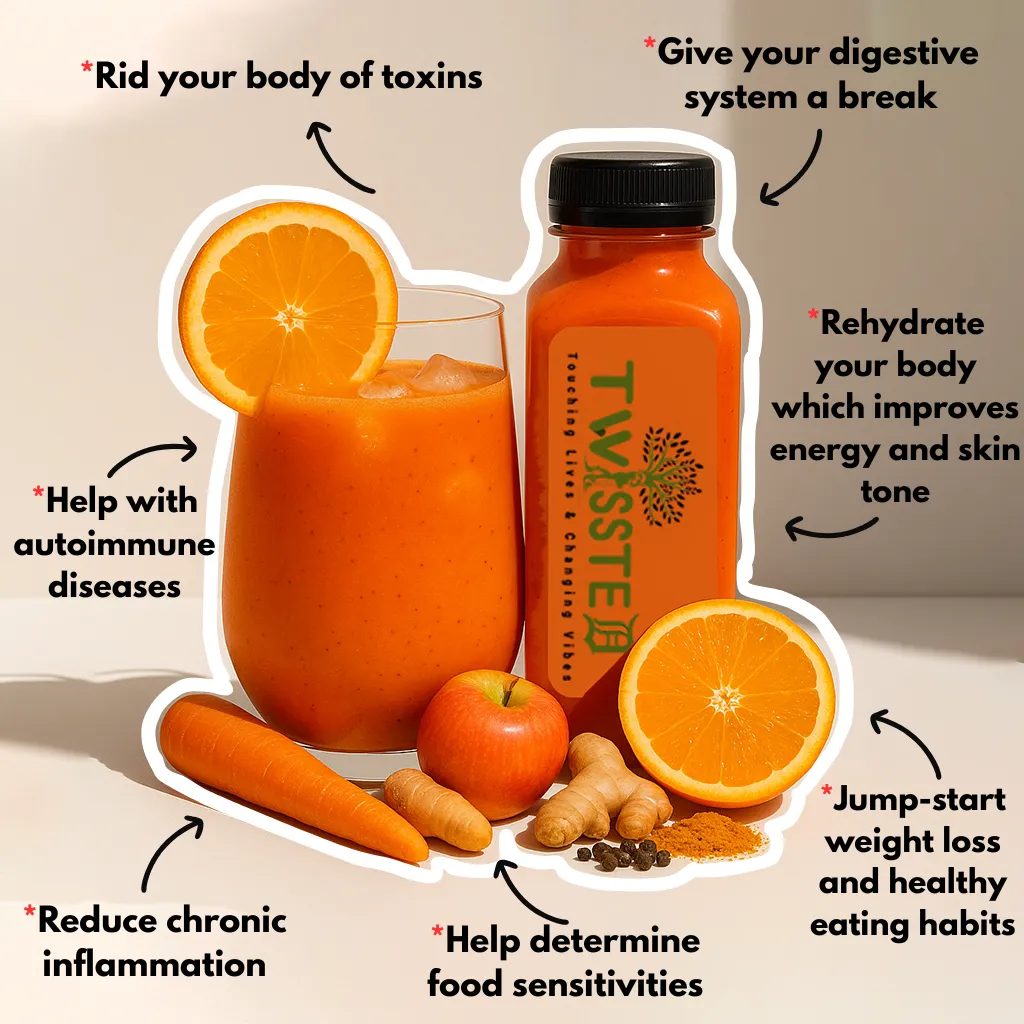
Try Our Cold-Pressed Juices Today!
THE ULTIMATE
JUICE CLEANSE GUIDE
Preparation & Pre- cleansing
In Only 4 Steps
Transition unhealthy meals and junk food out of your diet and ..
Stay Focused
A juice cleanse is a great way to break back into healthy eating ..
Twissted
1, 3 or 5-Day
Juice Cleanse Experience
During the cleanse Warm lemon water is your best friend ..
Post-Cleanse Glow
Through this post-cleanse process, remember to hydrate by drinking ...
Follow Us
Tag us on Instagram @Twissted.Life Juice
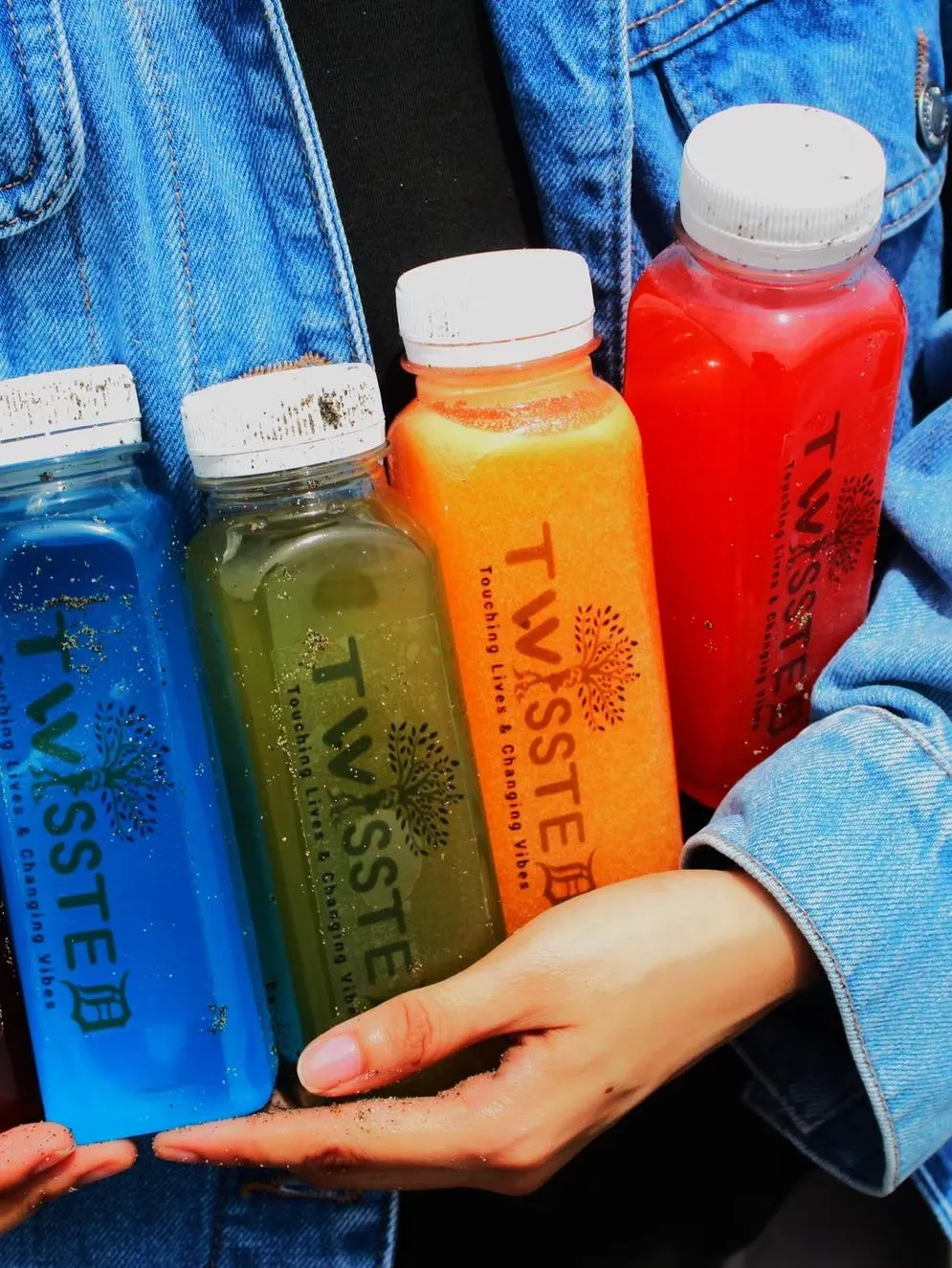
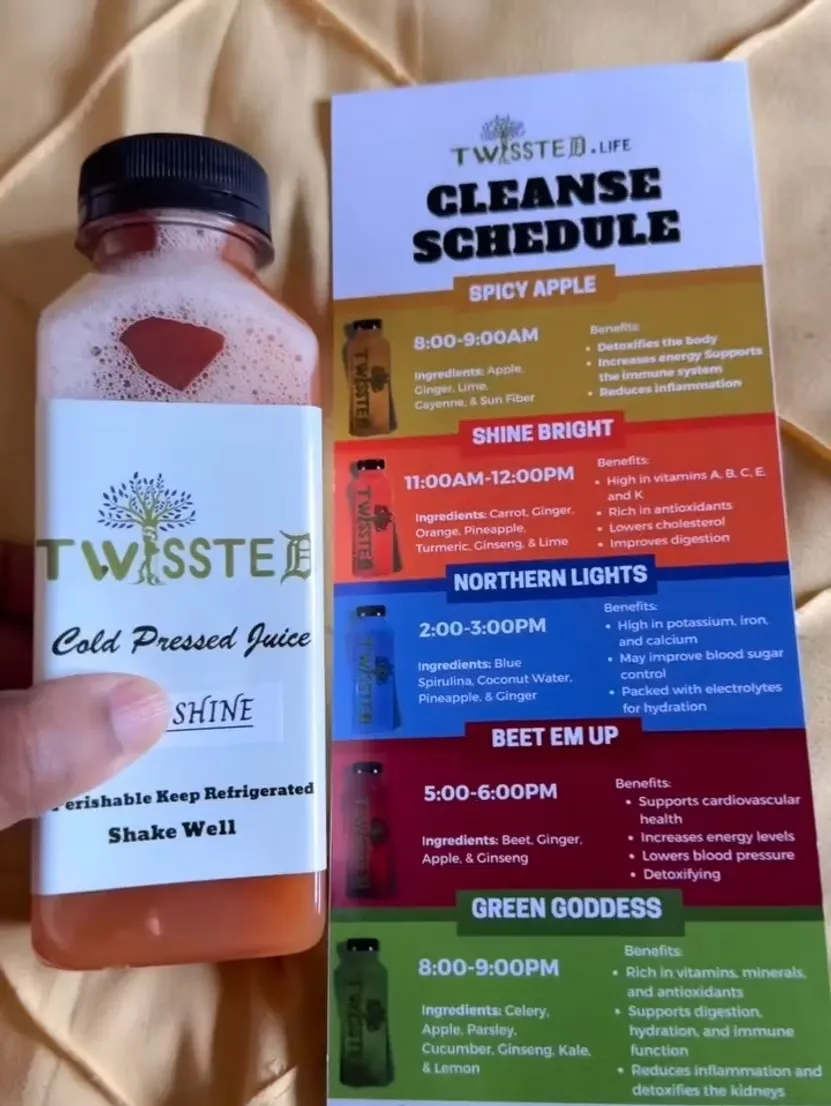
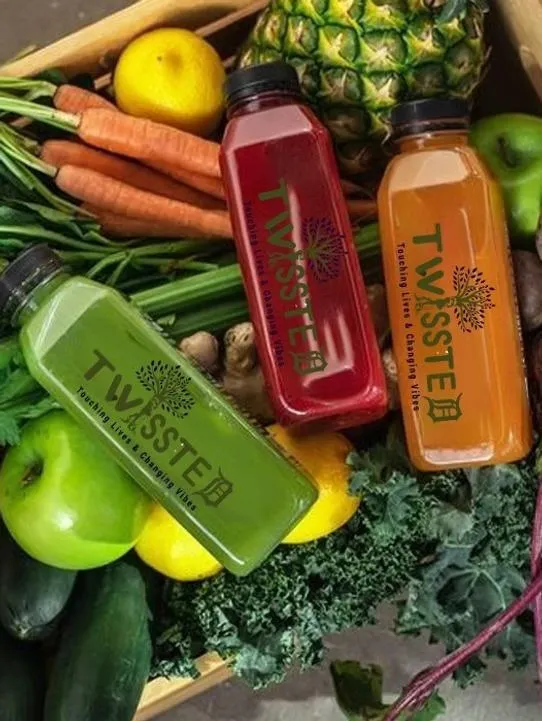
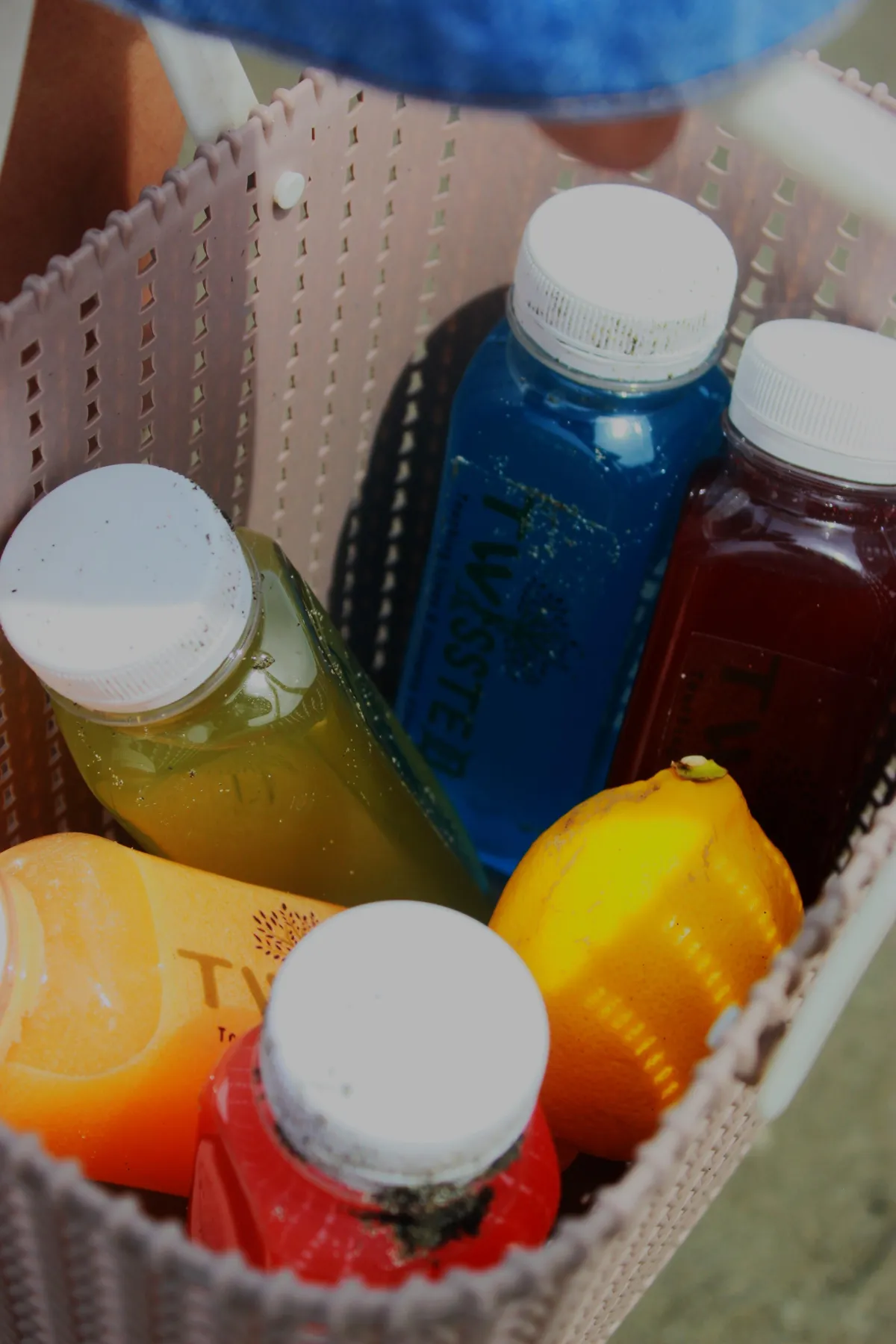
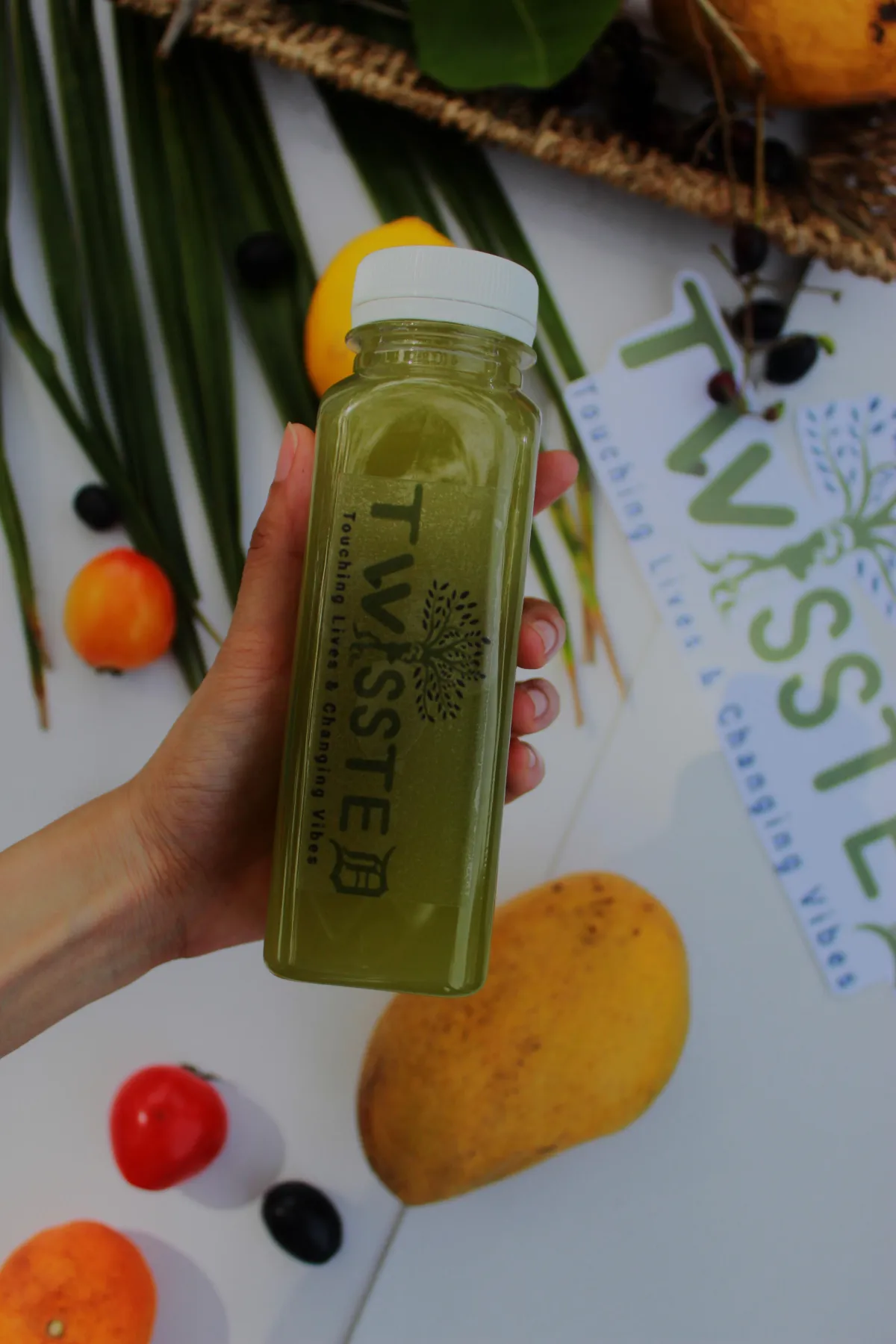

Everything You Wanted to Know About Twissted.Life Juices
How long is the shelf life?
Our juices have up to 7 days shelf life.
Where can I track my order?
Please provide your order details so we can track your order. Thank you!
Do you have any discounts for first-time buyers?
Yes, we offer discounts for 1st time buyers.
Do you ship out of state?
We currently do not ship out of state.
Are Twissted.Life Juices made with health-conscious and allergy-friendly ingredients?
Yes! Twissted Life Juices are BPA-free, contain no trans fat, are dairy-free, vegan-friendly, all-natural, and gluten-free—perfect for a wide range of dietary needs and lifestyles.
When are your juices made and when can I pick them up?
Our juices are made fresh on Monday, Wednesday, and Saturday, and pickup is available after 3 PM.
Do you have a loyalty or membership program?
Yes, we offer a Juice Club / Membership program where you can earn discounts and special offers.
Can you tell me more about your ethos or philosophy?
Our vision is “Touching Lives & Changing Vibes.” We believe in wellness, vitality, and promoting positive change through what you drink.
Get to Know Us
Our journey began with a vision:
A vision of wellness, vitality, and positive change for everyone who sips on our juices.
We are committed to
Touching Lives & Changing Vibes!
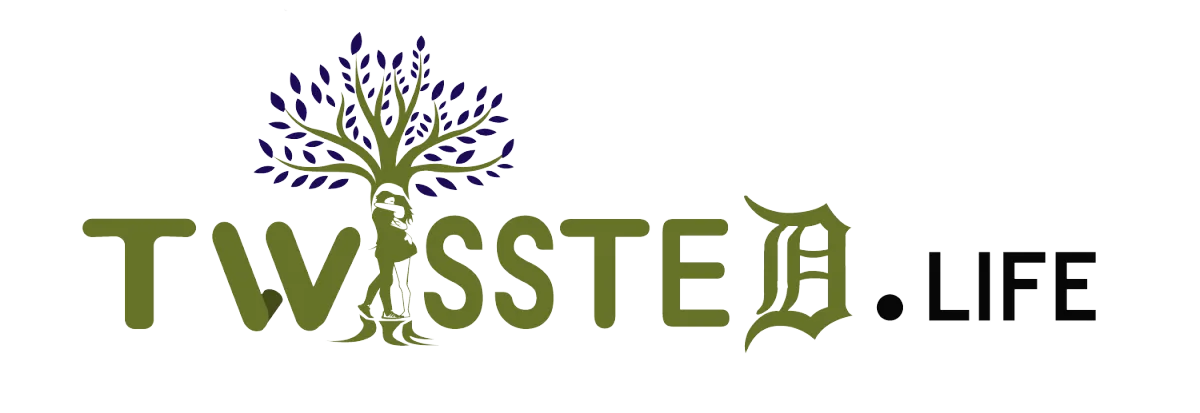
FOLLOW US
COMPANY
MEMBERSHIP
SHOP
Copyright 2026. Twissted Juice. All Rights Reserved.
